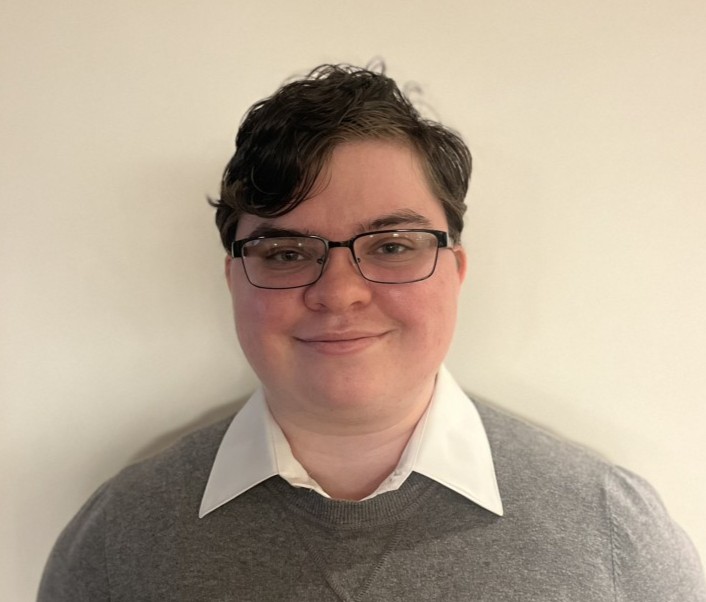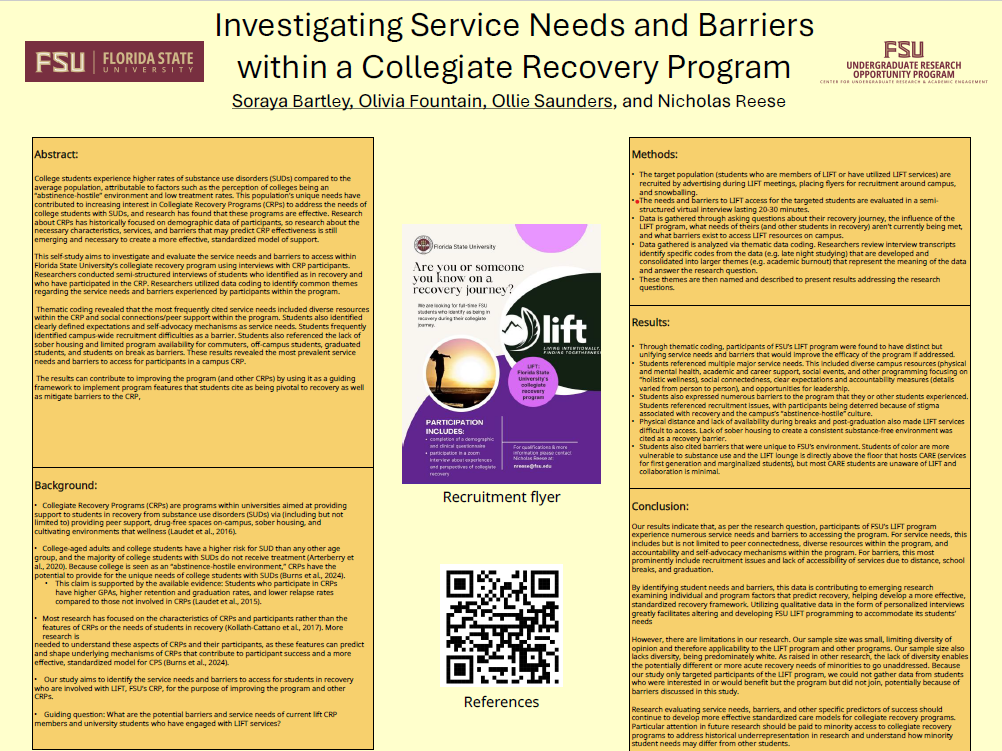Research Symposium
25th annual Undergraduate Research Symposium, April 1, 2025
Ollie Saunders Poster Session 4: 3:00 pm - 4:00 pm/ Poster #230

BIO
Ollie Saunders is a second-year political science major and environmental science minor from Naples, Florida. Beyond UROP, they serve as the programming coordinator for Florida State University's Pride Student Union. They have an interest in public policy analysis and are interested in pursuing a career in law as a civil rights attorney.
Investigating service needs and barriers within a collegiate recovery program
Authors: Ollie Saunders, Nicholas ReeseStudent Major: Political Science
Mentor: Nicholas Reese
Mentor's Department: Department of Educational Psychology & Learning Systems Mentor's College: College of Education Co-Presenters: Olivia Fountain-Zimmerman, Soraya Bartley
Abstract
College students experience higher rates of substance use disorders (SUDs) compared to the average population, attributable to factors such as the perception of colleges being an “abstinence-hostile” environment and low treatment rates. This population’s unique needs have contributed to increasing interest in Collegiate Recovery Programs (CRPs) to address the needs of college students with SUDs. Research about CRPs has historically focused on participant demographics, so research about the necessary characteristics, services, and barriers that may predict CRP effectiveness is necessary to create a more effective, standardized model of support.
This self-study investigates the service needs and barriers to access within Florida State University’s collegiate recovery program using interviews with CRP participants. Researchers conducted semi-structured interviews of students who have participated in the CRP and identify as in recovery. Researchers utilized data coding to identify common themes regarding the service needs and barriers experienced by program participants.
Thematic coding revealed the most frequently cited service needs included peer connections, sober spaces for students, and support for students with mental health issues and process addictions. Students frequently identified lack of knowledge of the program due to limited promotion as a barrier. Students also referenced limited meeting times and spaces, lack of education on substance misuse, and campus party culture as barriers to involvement. These results revealed the most prevalent service needs and barriers to access for participants. This data can be utilized to improve the CRP by mitigating barriers and informing programming with features that students cite as being pivotal to recovery.
Keywords: Recovery, collegiate recovery program, substance abuse


